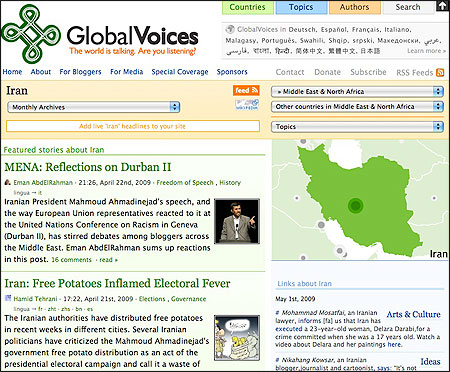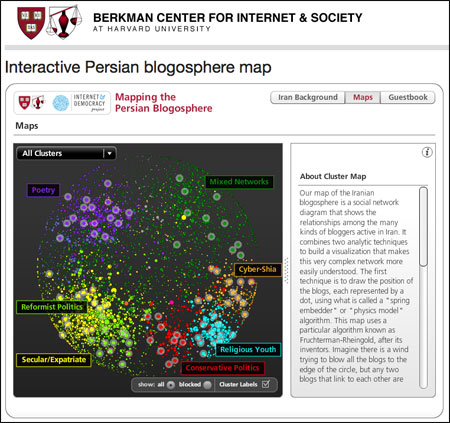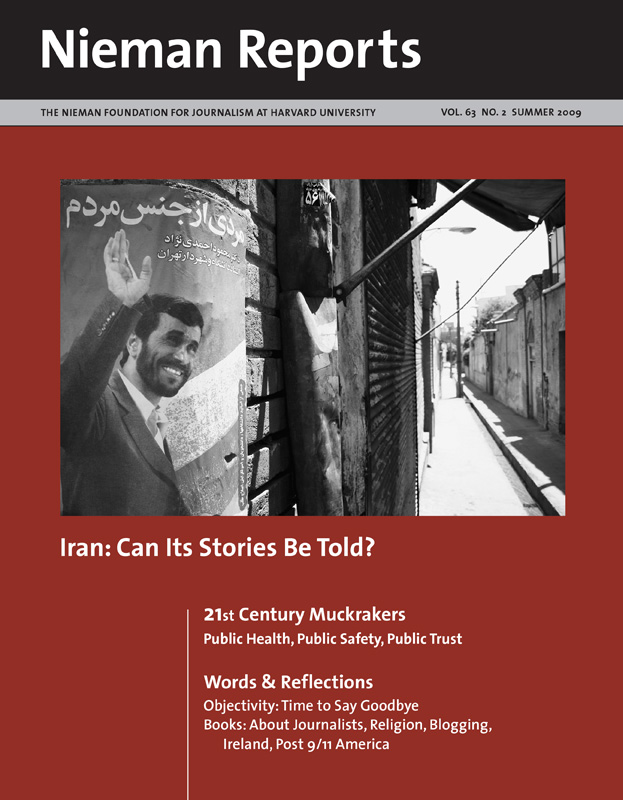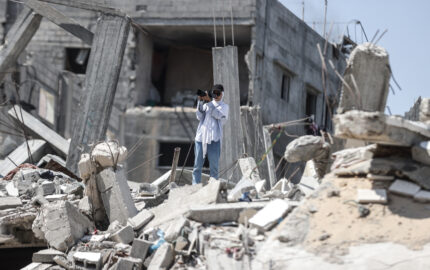
Iran’s home page on the Global Voices Web site.
RELATED ARTICLE
"Attempting to Silence Iran’s ‘Weblogistan’"
- Mohamed Abdel DayemHarvard University’s Berkman Center for Internet & Society has been home to two unique efforts that make more visible to Western audiences what Iranian bloggers are writing. One of the center's projects involves mapping and analyzing the social networks formed by Iranian bloggers; the other, Global Voices, began as a blog at Berkman and is now a global community of freelance and volunteer editors, authors and translators who bring newsworthy blogs from many parts of the world, including Iran, to the attention of Western audiences by translating them and posting them on the Web site.

The interactive Persian blogosphere map at Harvard's Berkman Center for Internet & Society web site.
In “Mapping Iran’s Online Public: Politics and Culture in the Persian Blogosphere,” Bruce Etling, the Berkman Center's Internet & Democracy project director and John Kelly, who is founder and chief scientist at Morningside Analytics, use a combination of computational social network analysis and human and automated analysis to discover Iran’s wide variety of blogging voices and to see how these bloggers tend to cluster themselves. Their analysis revealed four major networks (what he calls “poles”), with subclusters of bloggers within each one. The poles they identify are:
- Secular/Reformist: Contains expatriates and Iranians involved in a dialogue about Iranian politics and other issues.
- Conservative/Religious: Two subclusters are focused primarily on religious issues; the other subcluster is on politics and current affairs.
- Persian Poetry and Literature
- Mixed Networks
An interesting—and perhaps surprising—finding this analysis revealed is the existence of a subcluster within the Secular/Reformist pole comprised of bloggers living in Iran who write intensively about politics and current affairs and are linked in a contentious dialogue with the conservative political subcluster. It is also more common for bloggers in the conservative/religious pole to blog anonymously than for secular/reformist ones. The most frequently blocked blogs are those in the secular/reformist pole. As they wrote on the Berkman Web site about this project, “Given the repressive media environment in Iran today, blogs may represent the most open public communications platform for political discourse.”
For those interested in what bloggers in Iran are saying, Global Voices aggregates, curates, translates and amplifies their conversations. Its team of regional blogger-editors becomes guides to Iran’s blogosphere. In Iran, where blogging happens in Farsi, what’s being written is inaccessible to Western audiences. So Global Voices translates its selected blogs into English to be read by the site’s English-speaking audience. Also, other relevant pieces are translated from English into Farsi so that conversations going on outside of the Iranian blogosphere become accessible to Iranians.



